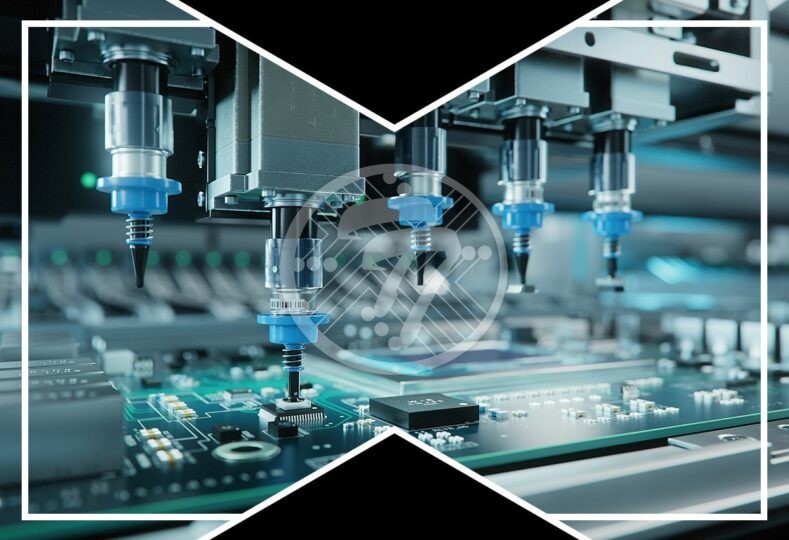Top benefits of Automation in Electronics Manufacturing!

Industrial automation refers to using technology and control systems to replace physical labor in manufacturing. It is clearly a step ahead of mechanization. In fact, with a combination of mechanics, hydraulics, pneumatics, tasks that were carried out by human beings can be automated. This, in turn, will pave the wave for Industry 4.0, that will revolutionize manufacturing as well as engineering.
In fact, industrial automation will positively impact a wide variety of sectors, right from automotive to FMCG.
The benefits of automation in electronics manufacturing:
1. Improved efficiency
One of the biggest advantages that accrue from automation is that it takes away the propensity of error that comes with manual intervention. Even though machines may not be a match to human creativity, they are great to get repetitive work done without fatigue and therefore, errors.
In electronics manufacturing, particularly in manufacturing mission critical equipment where accuracy is key, the importance of automation cannot be overstated. Also, where the work takes place in dangerous environs or where the work is extremely monotonous, automation offers the right solution.
2. Reduced Costs
In terms of costs, automation goes a long way in saving labor costs. In fact machines can work for far longer hours even in extreme conditions. Not just that, if you do not implement automation solutions, this cost will continue to rise. In fact, in the wake of the pandemic labor shortage has only worsened that can make businesses extremely unviable.
3. Safety
With robots and automated machines being able to handle dangerous tasks and harsh environmental conditions, it ensures safety. Be it lifting heavy equipment or inclement weather conditions, you do not have to worry if you are using automation, as opposed to using manpower.
4. Improved quality
The improved quality from automation also occurs on account of the fact that when machines take over repetitive, monotonous work, it frees up time for people to focus on innovation and other complexities. What this results in, is overall high quality products. In fact, with the basic tasks being taken care of by machines, human beings can focus on high value activities bringing progressive improvement in the quality of electronics.
5. Quick time-to-market
Automation in electronics manufacturing services leads to faster production, and in turn quick time-to-market, which is a big source of competitive advantage. In fact, with appropriate preventive maintenance, machines can run nearly perpetually.
6. Improved Customization
With automation allowing manufacturers to increase flexibility in production, what will also benefit is the ability to customize products to different specifications. Traditionally, electronic products have been built in high volumes to the same specification. With smart factories, this is slated to change.
With this improved level of flexibility, what will also see a change, is the ability of original equipment manufacturers to build prototypes and hence new products quickly.
7. New products
Automation is certainly going to result in a wide range of new products introduction (NPI) that will improve lives as also drive automation even further forward paving the way for high quality products that push boundaries.
8. Improved Sustainability
Automation can lead to streamlining overall operations as well as reducing resource costs. Importantly, it also leads to reducing the company’s environmental footprint. In fact compared to legacy systems automation uses fewer resources as well as less energy. It therefore has lower emissions.
Customers too prefer eco-friendly brands and prefer companies that source material ethically and impact the surrounding environment and communities positively. In fact, the entire supply chain benefits from eco-friendly practices including the many vendors and suppliers who can also claim that everything was sourced and supplied using sustainable means.
To sum up
At the onset the key factors that led to industrial automation were improving productivity and cutting costs. The focus, however, is moving towards improving quality and nimbleness and agility.
In fact, the adoption of automation will lead more and more electronic manufacturers to use efficient operations. Any challenges along the way will involve their mitigation using remote monitoring as well as smart control systems. The eventual future definitely is lights-out manufacturing, with several organizations already adopting the concept.
As a leading electronics contract manufacturer, Technotronix offer PCB manufacturing service with combining state-of-the-art technology and advanced engineering to deliver unparalleled quality and service. We are upgrading ourselves every day and offering the finest circuit board assembly, circuit board designs and fabrication services to our clients.
If you have questions or queries related to any kind of PCB manufacturing services, email us at [email protected] or call us on 714/630-9200.






